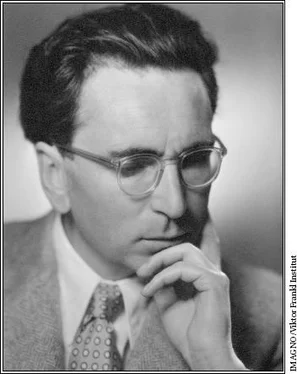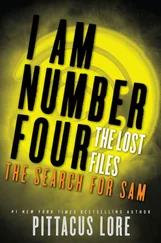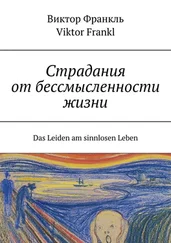This intensification of inner life helped the prisoner find a refuge from the emptiness, desolation and spiritual poverty of his existence, by letting him escape into the past. When given free rein, his imagination played with past events, of- ten not important ones, but minor happenings and trifling things. His nostalgic memory glorified them and they assumed a strange character. Their world and their existence seemed very distant and the spirit reached out for them longingly: In my mind I took bus rides, unlocked the front door of my apartment, answered my telephone, switched on the electric lights. Our thoughts often centered on such details, and these memories could move one to tears.
As the inner life of the prisoner tended to become more intense, he also experienced the beauty of art and nature as never before. Under their influence he sometimes even forgot his own frightful circumstances. If someone had seen our faces on the journey from Auschwitz to a Bavarian camp as we beheld the mountains of Salzburg with their summits glowing in the sunset, through the little barred windows of the prison carriage, he would never have believed that those were the faces of men who had given up all hope of life and liberty. Despite that factor—or maybe because of it—we were carried away by nature’s beauty, which we had missed for so long.
In camp, too, a man might draw the attention of a comrade working next to him to a nice view of the setting sun shining through the tall trees of the Bavarian woods (as in the famous water color by Dürer), the same woods in which we had built an enormous, hidden munitions plant. One evening, when we were already resting on the floor of our hut, dead tired, soup bowls in hand, a fellow prisoner rushed in and asked us to run out to the assembly grounds and see the wonderful sunset. Standing outside we saw sinister clouds glowing in the west and the whole sky alive with clouds of ever-changing shapes and colors, from steel blue to blood red. The desolate grey mud huts provided a sharp contrast, while the puddles on the muddy ground reflected the glowing sky. Then, after minutes of moving silence, one prisoner said to another, “How beautiful the world could be!”
Another time we were at work in a trench. The dawn was grey around us; grey was the sky above; grey the snow in the pale light of dawn; grey the rags in which my fellow prisoners were clad, and grey their faces. I was again conversing silently with my wife, or perhaps I was struggling to find the rea- son for my sufferings, my slow dying. In a last violent protest against the hopelessness of imminent death, I sensed my spirit piercing through the enveloping gloom. I felt it transcend that hopeless, meaningless world, and from somewhere I heard a victorious “Yes” in answer to my question of the existence of an ultimate purpose. At that moment a light was lit in a distant farmhouse, which stood on the horizon as if painted there, in the midst of the miserable grey of a dawning morning in Bavaria. “Et lux in tenebris lucet” —and the light shineth in the darkness. For hours I stood hacking at the icy ground. The guard passed by, insulting me, and once again I communed with my beloved. More and more I felt that she was present, that she was with me; I had the feeling that I was able to touch her, able to stretch out my hand and grasp hers. The feeling was very strong: she was there . Then, at that very moment, a bird flew down silently and perched just in front of me, on the heap of soil which I had dug up from the ditch, and looked steadily at me.
Earlier, I mentioned art. Is there such a thing in a concentration camp? It rather depends on what one chooses to call art. A kind of cabaret was improvised from time to time. A hut was cleared temporarily, a few wooden benches were pushed or nailed together and a program was drawn up. In the evening those who had fairly good positions in camp—the Capos and the workers who did not have to leave camp on distant marches—assembled there. They came to have a few laughs or perhaps to cry a little; anyway, to forget. There were songs, poems, jokes, some with underlying satire regarding the camp. All were meant to help us forget, and they did help. The gatherings were so effective that a few ordinary prisoners went to see the cabaret in spite of their fatigue even though they missed their daily portion of food by going.
During the half-hour lunch interval when soup (which the contractors paid for and for which they did not spend much) was ladled out at our work site, we were allowed to assemble in an unfinished engine room. On entering, everyone got a ladleful of the watery soup. While we sipped it greedily, a prisoner climbed onto a tub and sang Italian arias. We enjoyed the songs, and he was guaranteed a double helping of soup, straight “from the bottom”—that meant with peas!
Rewards were given in camp not only for entertainment, but also for applause. I, for example, could have found protection (how lucky I was never in need of it!) from the camp’s most dreaded Capo, who for more than one good reason was known as “The Murderous Capo.” This is how it happened. One evening I had the great honor of being invited again to the room where the spiritualistic seance had taken place. There were gathered the same intimate friends of the chief doctor and, most illegally, the warrant offcer from the sanitation squad was again present. The Murderous Capo entered the room by chance, and he was asked to recite one of his poems, which had become famous (or infamous) in camp. He did not need to be asked twice and quickly produced a kind of diary from which he began to read samples of his art. I bit my lips till they hurt in order to keep from laughing at one of his love poems, and very likely that saved my life. Since I was also generous with my applause, my life might have been saved even had I been detailed to his working party to which I had previously been assigned for one day—a day that was quite enough for me. It was useful, anyway, to be known to The Murderous Capo from a favorable angle. So I applauded as hard as I could.
Generally speaking, of course, any pursuit of art in camp was somewhat grotesque. I would say that the real impression made by anything connected with art arose only from the ghostlike contrast between the performance and the background of desolate camp life. I shall never forget how I awoke from the deep sleep of exhaustion on my second night in Auschwitz—roused by music. The senior warden of the hut had some kind of celebration in his room, which was near the entrance of the hut. Tipsy voices bawled some hackneyed tunes. Suddenly there was a silence and into the night a violin sang a desperately sad tango, an unusual tune not spoiled by frequent playing. The violin wept and a part of me wept with it, for on that same day someone had a twenty-fourth birthday. That someone lay in another part of the Auschwitz camp, possibly only a few hundred or a thousand yards away, and yet completely out of reach. That someone was my wife.
To discover that there was any semblance of art in a concentration camp must be surprise enough for an outsider, but he may be even more astonished to hear that one could find a sense of humor there as well; of course, only the faint trace of one, and then only for a few seconds or minutes. Humor was another of the soul’s weapons in the fight for self-preservation. It is well known that humor, more than anything else in the human make-up, can afford an aloofness and an ability to rise above any situation, even if only for a few seconds. I practically trained a friend of mine who worked next to me on the building site to develop a sense of humor. I suggested to him that we would promise each other to invent at least one amusing story daily, about some incident that could happen one day after our liberation. He was a surgeon and had been an assistant on the staff of a large hospital. So I once tried to get him to smile by describing to him how he would be unable to lose the habits of camp life when he returned to his former work. On the building site (especially when the supervisor made his tour of inspection) the foreman encouraged us to work faster by shouting: “Action! Action!” I told my friend, “One day you will be back in the operating room, performing a big abdominal operation. Suddenly an orderly will rush in announcing the arrival of the senior surgeon by shouting, ‘Action! Action!’”
Читать дальше












